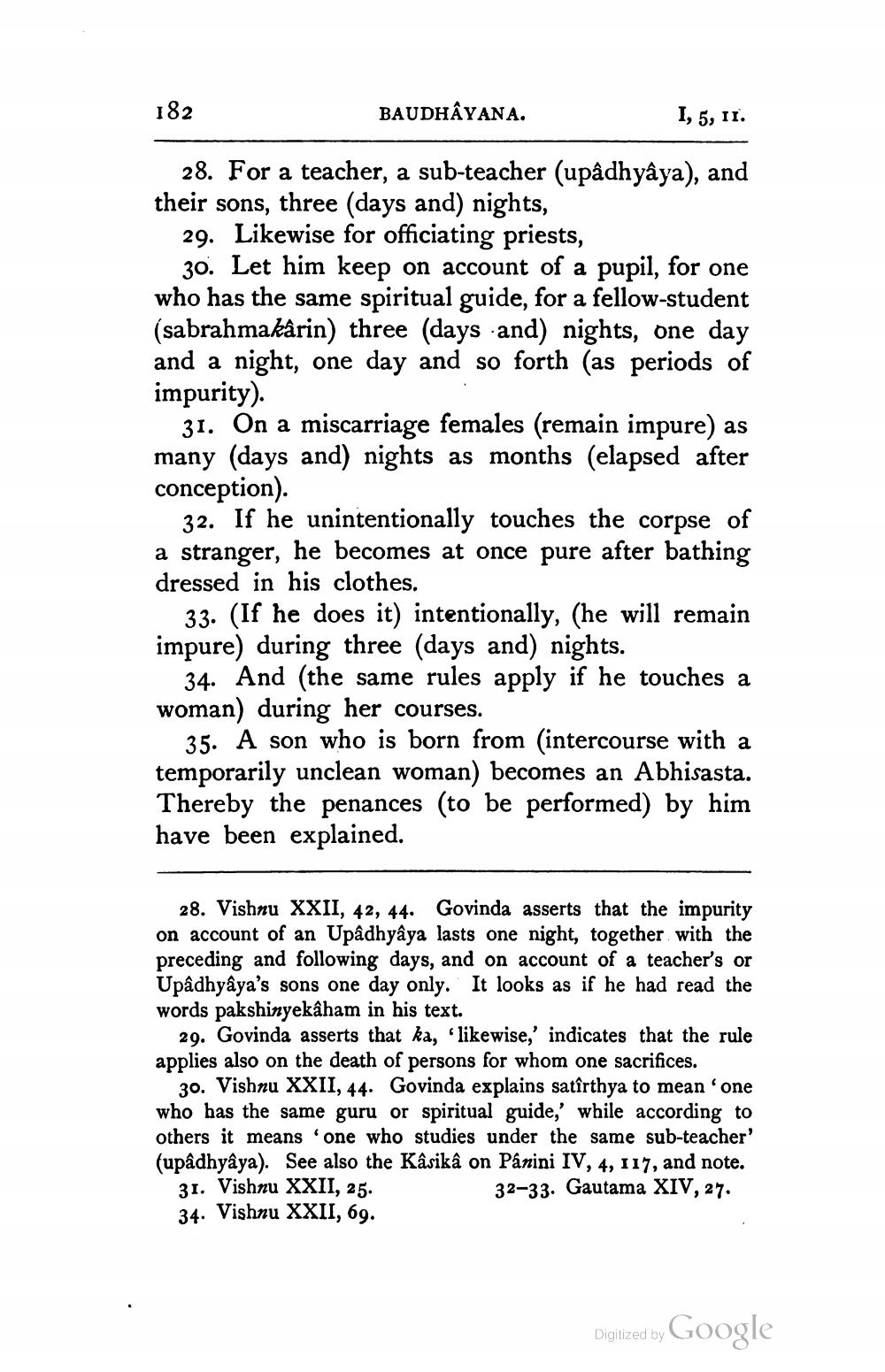________________
182
BAUDHAYANA.
I, 5, 11.
28. For a teacher, a sub-teacher (upâdhyâya), and their sons, three (days and) nights,
29. Likewise for officiating priests,
30. Let him keep on account of a pupil, for one who has the same spiritual guide, for a fellow-student (sabrahmakârin) three (days and) nights, one day and a night, one day and so forth (as periods of impurity).
31. On a miscarriage females (remain impure) as many (days and) nights as months (elapsed after conception).
32. If he unintentionally touches the corpse of a stranger, he becomes at once pure after bathing dressed in his clothes.
33. (If he does it) intentionally, (he will remain impure) during three (days and) nights.
34. And (the same rules apply if he touches a woman) during her courses.
35. A son who is born from (intercourse with a temporarily unclean woman) becomes an Abhisasta. Thereby the penances (to be performed) by him have been explained.
28. Vishnu XXII, 42, 44. Govinda asserts that the impurity on account of an Upadhyâya lasts one night, together with the preceding and following days, and on account of a teacher's or Upadhyâya's sons one day only. It looks as if he had read the words pakshinyekâham in his text.
29. Govinda asserts that ka, likewise,' indicates that the rule applies also on the death of persons for whom one sacrifices.
30. Vishnu XXII, 44. Govinda explains satîrthya to mean one who has the same guru or spiritual guide,' while according to others it means 'one who studies under the same sub-teacher' (upadhyâya). See also the Kâsika on Panini IV, 4, 117, and note. 31. Vishnu XXII, 25.
32-33. Gautama XIV, 27. 34. Vishnu XXII, 69.
Digitized by Google




